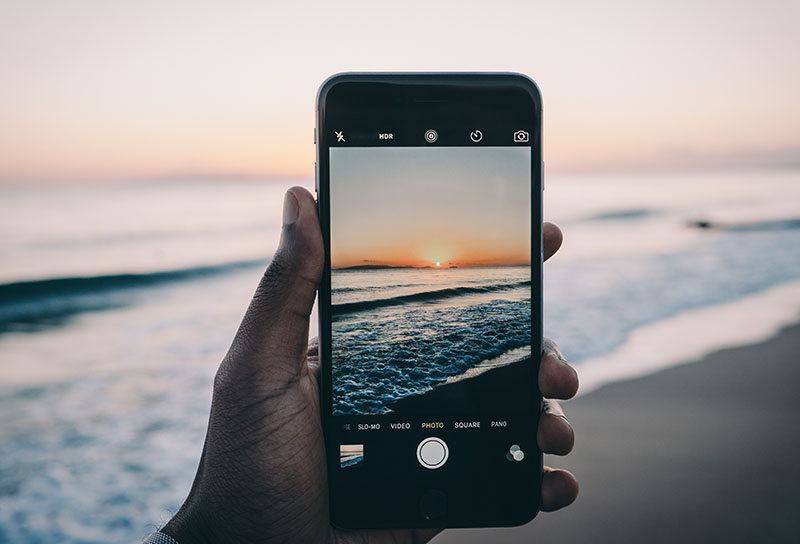Almost everything will work again if you unplug it for a few minutes, including you.
Anne Lamott
This Friday marks National Day of Unplugging.
An invitation to enjoy a 24-hour global respite from technology, this event “highlights the value of disconnecting from digital devices to connect with ourselves, our loved ones, and our communities in real time.”
Maybe you’ll decide to unplug entirely for the day. Or the whole weekend.
Or maybe you’d rather choose a few specific ways to change up your connectivity habits, and go from there.
It’s all good (for your emotional wellness).
Read on for 18 ways you can unplug this weekend and beyond.
Unplug your entertainment
- Enjoy 1 screen at a time. If you’re curled up in front of Netflix, don’t also open your laptop. If you’re watching the game with friends, give social media a rest for awhile.
- Perform a social media audit. Take time to carefully review the social media accounts you follow, with a focus on noticing how each makes you feel when it appears in your feed. Does it encourage you, entertain you, or inspire you? Or discourage you, frustrate you, or deplete you? (If it’s mostly the former… keep it! But, if it’s mostly the latter… bye, Felicia.)
- Create/contribute more, consume less. Need a little inspiration for new ways to entertain yourself? Focus on making, sharing, and giving (e.g., your time, energy, help, ideas, resources) and naturally-unplugged ideas will start presenting themselves before you know it!
Unplug your relaxation
- Record now, share later. If your phone is the best way to capture that gorgeous sunset, or your kids playing at the park, by all means, take the photo. But, that doesn’t mean you need to upload to social media in real time. Record the memory, then enjoy the moment. Your photos will be there when you’re ready to post.
- Rethink gaming. Are most games in your home played on an electronic device? Pull out the board games, challenge your kids to a few rounds of hide and seek, or quiz each other on trivia.
- Take self-care seriously. Whether you focus your efforts inward, outward, or both, there’s no better time to get real about your self-care habits.
- Write it out. Get your thoughts and feelings out on paper with one of these journaling exercises.
- Be your own app. From habit-change to mindfulness, there’s an impressive array of tech resources to enhance our emotional wellness efforts. But, if you’ve become dependent on these tools to help you relax, consider some unplugged alternatives, like a comfy blanket, a therapy session, or a walk in the fresh air.
Unplug your relationships
- Talk to just 1 person. The next time you feel inspired to share a thought with your social media “friends” or “followers”, try sharing it with one friend, colleague, neighbor, or family member instead. See what happens.
- Put it in a letter. Got something to say over text, phone, or email? Consider putting it in writing (in an actual card or letter) and mailing it.
- Put in “face time” with coworkers. If you typically fill your work breaks with screen time, use that time to chat and connect with the people you work with.
- Cue yourself. If it’s become all to easy to disappear into your phone around your loved ones, give yourself a cue. Write it on the mirror, set a timed alert, or ask your partner to help keep you accountable: Put the phone down.
- Make the most of mealtimes. As long as you’re all gathered around one table, you might as well talk to each other, right? Try setting a “no-screens” boundary around mealtimes, and use that time to take turns telling jokes, answering a hypothetical question, or sharing the “high and low” moments of your day.
Unplug your day-to-day
- Wake up old-school style. Need help getting up in the morning? Leave your phone in a drawer (or another room) for the night, and set your watch or an actual alarm clock to wake you.
- Go on a “low-information diet”. Popularized by Tim Ferriss in The 4-Hour Workweek, this is the practice of “selectively ignoring distracting, irrelevant, or otherwise unnecessary information” in order to free up mental (and emotional) resources, redirecting them toward what matters to you. A great place to start? Think of the first sources of info you consume each day (e.g., TV, radio, phone). Try opting out for a few days, and see how you feel.
- Switch up your work tech. Do you usually take notes on a laptop or other device? Experiment with pen and paper instead. Check email intermittently throughout the day? Try scheduling set times to respond to email; close out of your email client and shut off notifications in between those times.
- Quiet the commute. Instead of going straight for your usual radio show or podcast, try spending part of your commute in quiet and see what comes up. It may feel strange, but consider this: It could be the most uninterrupted time alone you experience all day.
- Unplug to unwind. How do you usually end your day? Zoned out in front of the TV? Scrolling aimlessly through social media? That’s OK. (There’s nothing wrong with a little screen time… just make sure you’re choosing it mindfully, and truly enjoying the experience.) But if you could use a break from the late-night connectivity, try unwinding with a low-tech option, like a hot bath, a good book, or a quick list of what you’re grateful for.
Enjoy this post? You might also like:
Navigating Spring Break as a Family
Handy Tool or False Alarm? When Anxiety Helps, and When It Hurts
The Trick Is Treating Yourself to Self-Care
Ready to unplug your way to emotional wellness?

